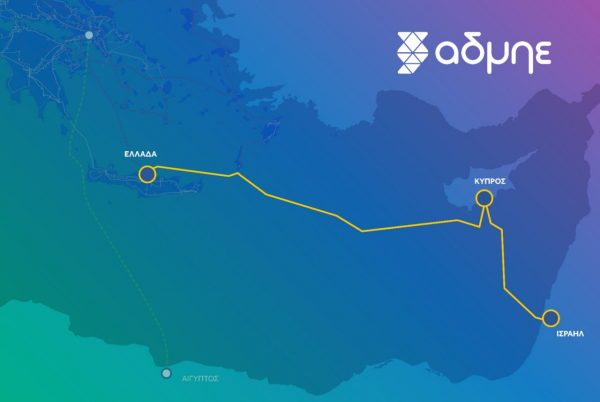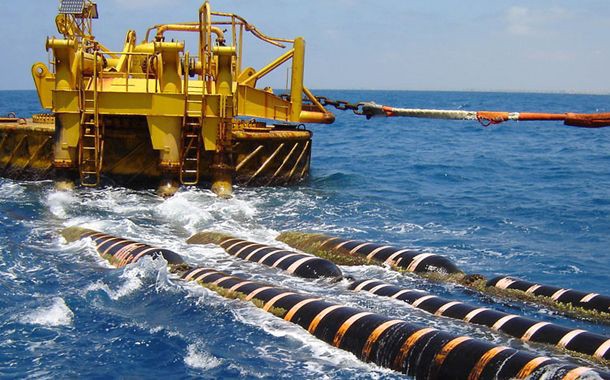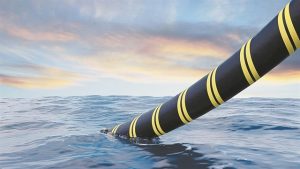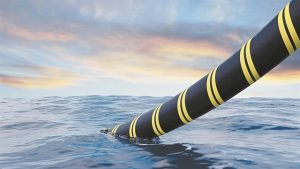Partners of a €2 billion undersea cable project between Israel, Greece and Cyprus, known as the Great Sea Interconnector, now have until Friday, Sept. 6, to sort out differences before French multinational Nexans – the lead cable manufacturer in the endeavor – halts work, according to OT.gr.
Developments have been rapid over the past month, with intense behind-the-scenes negotiations taking place between Athens and Nicosia, according to OT. Greece’s Independent Power Transmission Operator (IPTO), the relevant energy ministries of both countries and the power regulatory authorities of Cyprus – (CERA) and Greece (RAAEY) – have been trying to patch up differences, although many uncertainties remain.
Nexans Ultimatum
According to OT, IPTO, which is responsible for implementing the Great Sea Interconnector, sent a letter to the French multinational after Nexans, which had previously announced a suspension of work, was asked to delay its decision until Friday.
Nexans had previously announced that a suspension after CERA’s management deemed the project as financially unviable, back in early July. CERA has now reportedly committed to revising this framework through two new regulatory decisions, the latter of which is expected on Wednesday and on Friday, the day when Nexans’ ultimatum expires.
If the decisions are not positive then Nexans is expected to permanently suspend its imperative role in the project.

CERA’s Decisions
Nexans and IPTO are now anticipating deciosions by Cyprus’ regulatory authority regarding the highly ambitious and geostrategically important project, with sources telling OT that CERA is expected to approve a Weighted Average Cost of Capital (WACC) of 8.3% over a 17-year period.
The project is forecast to generate €125 million in revenue during the first five years of construction. The remaining revenue will be covered through capitalization from the project’s operational date onward, essentially funded by consumer tariffs, explains OT.
The current agreement is reportedly temporary and if the project eventually goes ahead, OT says it is largely due to IPTO’s commitment and challenges to CERA’s decision of July 2.
Next Steps
If CERA eventually gives the greenlight vis-a-vis the project’s finanical viability, then IPTO will re-evaluate, along with RAAEY, to reassess the WACC for the Greek section of the cable, which OT says is seen coming in at around 9%.
The geopolitical risk associated with the Great Sea Interconnector, which is the proverbial “elephant in the room” and refers to official Turkey’s unilateral interpretation of international maritime law and its constant saber-rattling, will reportedly be addressed by the relevant governments at a later stage.
Turkey’s Bid to Get in the Game
OT adds that IPTO and the Cyprus Transmission System Operator (TSOC) have ignored and blocked a request from the Turkish-occupied pseudo-state propped up in the island republic’s north to establish a power connection with the occupying power, i.e. Turkey. The baseless request had been submitted to ENTSO-E, the European Network of Transmission System Operators for Electricity.
While halted for now, OT mentions that there is a risk for the pseudo-state’s “request” to resurface in the future.






